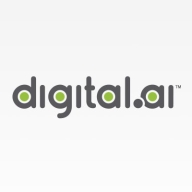

Digital.ai Deploy and GitLab are both key players in the software deployment and development space, with Digital.ai perceived to offer better support and pricing, while GitLab's extensive features and integration capabilities make it highly competitive. GitLab often has the upper hand due to its comprehensive feature set and cost efficiency.
Features: Digital.ai Deploy is strong in scalable deployment orchestration, robust release automation, and managed environments for controlled deployments. GitLab excels with its comprehensive CI/CD toolset, seamless integrations, and a unified platform that eases development processes. GitLab's integrated features make it advantageous for complex workflows.
Room for Improvement: Digital.ai Deploy could improve its user interface, offer more third-party integrations, and streamline its setup process. GitLab should work on enhancing its customer support, expanding its user community engagement, and providing more detailed error logging.
Ease of Deployment and Customer Service: Digital.ai Deploy simplifies deployment in complex IT environments with forte in transition support, noted for its responsive service. GitLab offers an intuitive deployment process with an all-in-one environment, benefitting from extensive documentation but is less personalized in customer service.
Pricing and ROI: Digital.ai Deploy usually involves higher initial costs but delivers ROI through faster deployments and minimized risks in complex scenarios. GitLab is cost-effective, offering substantial ROI due to its single-platform capability, reducing the requirement for multiple tools. GitLab's competitive edge often leans on its integrated features and pricing strategy.
Migrating to GitLab is bringing time-saving benefits, and everything is easier to automate.
We have saved time significantly, reducing deployment time from four hours to five minutes per deployment.
I have interacted with architects for some advice during the implementation, and they were prompt in their response.
I have had meetings where they taught me, explained things, and provided guidance for starting from scratch.
We have rarely needed to escalate issues to technical support since GitLab usually runs seamlessly.
It has all the features required for our coding and deployment needs, which makes it scalable to our changing requirements.
We're transitioning to OpenShift for future scalability with increased user numbers.
I have not encountered any performance or stability issues with GitLab so far.
It would be beneficial to have a user-friendly interface for setting up these configurations, instead of just writing YAML files.
The UI has remained the same for a couple of years and could benefit from an update with AI features and better customization.
GitLab is a great tool for developers, it lacks project planner features.
The pricing of GitLab is reasonable, aligning with what I consider to be average compared to competitors.
The price is high, and it limits user accessibility.
Even when working in other small organizations, we opted for GitLab as it was cost-efficient.
As we implement automated testing and DevSecOps, it speeds up the process by forty to sixty percent.
The Ultimate version offers enhanced features for security scanning through DAST and SAST analysis, which have greatly benefitted our project workflow.
The feature I appreciate the most about GitLab is its ease of use and compatibility, which allows for straightforward building and deployment processes.


Automate and standardize complex, enterprise-scale application deployments to any environment—from mainframes and middleware to containers and the cloud. Speed up deployments with increased reliability. Enable self-service deployment while maintaining governance and control.
GitLab is a complete DevOps platform that enables teams to collaborate and deliver software faster.
It provides a single application for the entire DevOps lifecycle, from planning and development to testing, deployment, and monitoring.
With GitLab, teams can streamline their workflows, automate processes, and improve productivity.
We monitor all Release Automation reviews to prevent fraudulent reviews and keep review quality high. We do not post reviews by company employees or direct competitors. We validate each review for authenticity via cross-reference with LinkedIn, and personal follow-up with the reviewer when necessary.